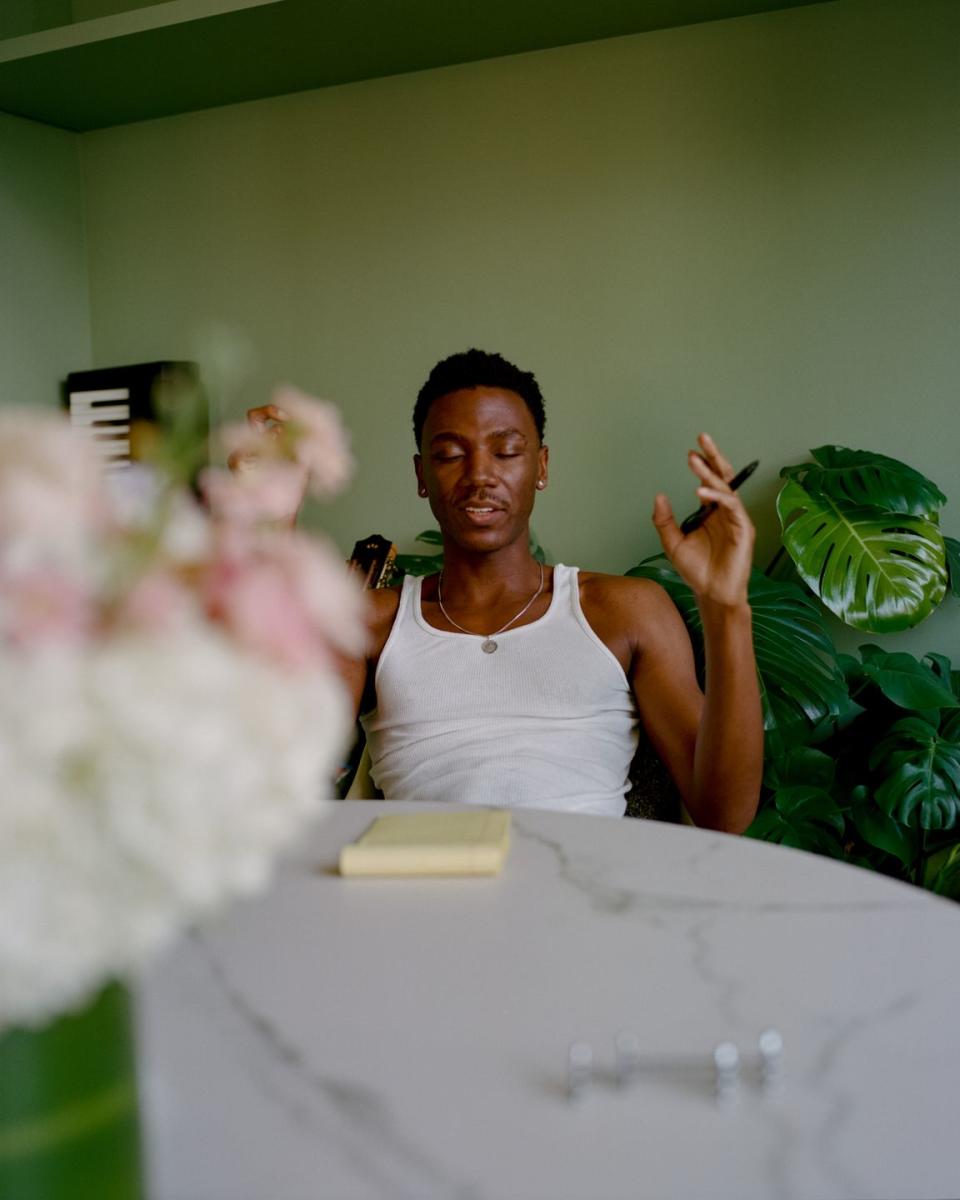Is the pursuit of authenticity worth the potential wreckage of self and relationships? Jerrod Carmichael, the comedian who has carved a niche out of uncomfortable truths, forces us to confront this very question, most recently through the lens of his Reality Show.
Carmichael's work consistently orbits around the uncomfortable, the awkward, the messy realities of human connection. His willingness to expose his vulnerabilities, his imperfections, and the complexities of his romantic relationships has become a defining characteristic of his artistic persona. This candor, however, has also stirred a potent cocktail of admiration and controversy, with audiences both captivated and occasionally repelled by the intimate details he reveals.
| Attribute | Details |
|---|---|
| Full Name | Jerrod Carmichael |
| Occupation | Comedian, Actor, Writer, Filmmaker |
| Known For | Stand-up comedy, the television series The Carmichael Show, and the Jerrod Carmichael Reality Show |
| Relationship Status | Publicly discussed relationships, including his boyfriend, Michael. |
| Personal Life Highlights | Openly explores themes of identity, sexuality, and relationships in his work. Navigates the complexities of monogamy. |
| Professional Achievements | Emmy-winning comedian. |
| Notable Works | The Carmichael Show, Jerrod Carmichael Reality Show. |
| Additional Information | Maintains a presence on social media. |
| Reference | Wikipedia |
The Jerrod Carmichael Reality Show, which premiered on HBO, delves deep into his personal life. It’s in this space that Carmichael’s relationship with his boyfriend, Michael, becomes a central focus. The series unveils a dynamic that oscillates between intimacy and infidelity, sparking conversations about the boundaries of relationships and the ethics of exposing such personal struggles to a public audience. The show doesn't shy away from difficult topics; instead, it actively embraces them, making for a raw and frequently uncomfortable viewing experience. This deliberate cultivation of unease is a hallmark of Carmichael's artistic approach.
In episode after episode, viewers are privy to the nuances of Carmichael's life, including his evolving understanding of himself and his relationships. He doesn't present himself as a perfect partner; instead, he openly admits to his flaws, including the difficult admission of infidelity, this choice has led to the difficult revelation that he's been unfaithful to his boyfriend, Michael. The show’s structure itself is intentionally loose, lacking the typical narrative arcs found in scripted programs. Instead, it relies on the immediacy of observation and the vulnerability of its subjects.
The inclusion of Michael, a writer pursuing a master's degree at the University of Iowa, provides a contrasting perspective. Michael's presence grounds the show. The show is more than just a series of confessionals; it’s a portrayal of the delicate balance between two individuals attempting to navigate the complexities of life and love, with the added pressure of public scrutiny. The depiction of their relationship challenges conventional notions of fidelity and commitment, leading to conversations about whether honesty, even when painful, is always the best policy.
Carmichael's willingness to delve into the intricacies of his romantic entanglements has prompted considerable debate. While some applaud his courage in confronting his inner demons and exposing the raw underbelly of relationships, others have critiqued the perceived exploitation of his partner and the potential damage caused by such public disclosures. The show’s depiction of his infidelity, in particular, has been a flashpoint, raising questions about the boundaries of artistic expression and the responsibilities of those who choose to share their personal lives with the world.
The comedian, however, doesn’t shy away from this criticism. In interviews and in the show itself, he acknowledges the ethical complexities of his choices. He recognizes the potential impact of his actions on those closest to him, even while asserting his right to create art that reflects his lived experiences. This ability to grapple with the contradictions inherent in his approach, and this willingness to confront the discomfort head-on, is what makes Carmichael’s work so compelling, even when it’s difficult to watch.
The use of the dating app Grindr, even while in a relationship, adds another layer of complexity to Carmichael's exploration of intimacy and desire. This seemingly minor detail reveals something important about the internal conflicts that Carmichael wrestles with, as well as the broader societal issues of sexual freedom and commitment. It’s a testament to his willingness to look closely at these internal conflicts.
Carmichael's work is also influenced by the cultural backdrop against which it unfolds. The show reflects the evolving conversations about identity, sexuality, and relationships that are taking place in society today. His willingness to challenge traditional norms and to embrace the nuances of his own experience contributes to this ongoing dialogue, prompting reflection on issues that are often considered taboo. He also acknowledges his role in this conversation, which further adds to the appeal of the show.
Carmichael has always used humor to explore his personal life. He often makes jokes about his relationship in his stand-up routines and in interviews. The humor doesn't diminish the underlying seriousness of the situations, but rather highlights his unique perspective. His comedy often serves as a coping mechanism for both himself and the audience, allowing them to engage with difficult topics in a more accessible way. This willingness to embrace humor, even in the face of pain, makes his work all the more relatable.
Carmichael's journey, however, isn't always comfortable. He understands that the pursuit of honesty can often be messy. He’s also aware that sometimes, it is more than just difficult. This doesn’t stop him from creating the art that he does, however. As Carmichael continues to explore the boundaries of self-expression, he is undoubtedly setting the stage for others to do the same. The “Jerrod Carmichael Reality Show” serves as a reminder of the power and the potential pitfalls of artistic honesty.
In the end, Carmichael’s work serves as a mirror, reflecting the complexities of modern life, relationships, and the relentless pursuit of self-understanding. It’s a testament to the enduring power of art to provoke, to challenge, and to illuminate the human condition.

